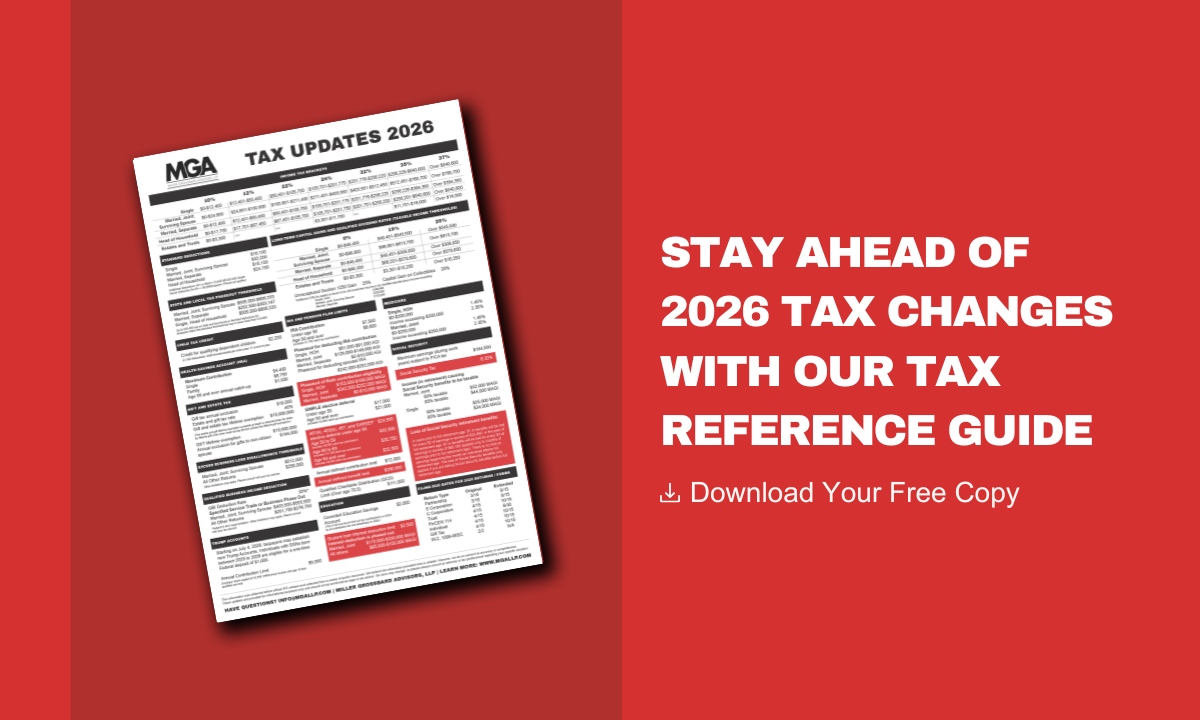Given the 2020 election results and the current makeup of Congress, the likelihood of new tax legislation is a real possibility. Since Congress and the President are currently more worried about COVID-19 relief, we don’t know when tax legislation changes might be introduced. Still, we wanted to share with you the proposals that were previously put on the table.
Here we’ve put together the general themes of Biden’s tax policy proposals that you should know about, so you can continue to plan accordingly.
Top 3 Themes of the Democratic Party’s Tax Policy Proposals
1. Increased tax on income for high-earners.According to the tax plan released, several policies would raise taxes on high-income earners by raising payroll, individual income, and capital gains taxes or limiting itemized deductions.
Let’s first take a look at income tax rates. Currently, the top marginal rate is 37%, with the top brackets being $523,600 (single) and $628,300 (married/joint). Biden’s plan would increase the top rate to 39.6% on any income over $400,000. Capital gains and qualified dividend tax rates would also be increased to 39.6% plus 3.8% Net Investment Income Tax for taxpayers with income over $1 million, making a combined top rate of 43.4%. This is a significant increase from the current combined top rate of 23.8%.
If passed, Biden’s plan would also limit the tax benefit of itemized deductions to 28%. This is currently based on the participant’s marginal rate, which is up to 37% for those in the highest brackets. The Pease limitation would also be reinstated (currently suspended) on itemized deductions for high-earners.
2. Increased tax on wealth for high-net-worth individuals.If enacted, the Democratic Party’s tax plan would increase tax on the wealthy by implementing a wealth tax for ultra-high-net-worth taxpayers. However, there is some controversy around whether this is unconstitutional. It would also increase estate and gift taxes and eliminate the step-up in basis at death for capital assets. The most likely scenario would be that the estate tax limitation, which is currently around $11.5 million per person, would be drastically reduced back down. Most of the talk believed this could be around $3 million, but again, this is all speculation.
3. Increased tax on businesses.Another main highlight of Biden’s general tax policy proposals is the increase of corporate tax rates and the elimination (or limitation) of certain deductions.
Today, the top corporate tax rate is 21%. If enacted, Biden’s plan would increase this rate to 28% with a 15% minimum tax for corporations with a book profit of $100 million or more who paid $0 or negative federal income taxes. It would also end special qualification rules related to Qualified Business Income Deduction (the pass-through deduction afforded to certain partnerships and S Corps), including those for real estate investors, and limit the deduction for individuals with an income over $400,000.
It’s Time to Start Your Tax Planning, Immediately
If you’re a high-earner, high-net-worth individual, or a business owner, you may see some changes coming your way soon. And although the chance of Congress enacting any tax law changes with a retroactive date is low, it still could happen. That’s why we suggest you start planning for these potential new tax laws today — it’s always better to be proactive than reactive.
We are here to keep you updated with the constant change around us to make informed decisions regarding your personal and business planning. If you have any questions or concerns, please don’t hesitate to reach out to us.
We are here to make the complex simple.
.png?width=191&name=mgalogofinal-01%20(3).png)




